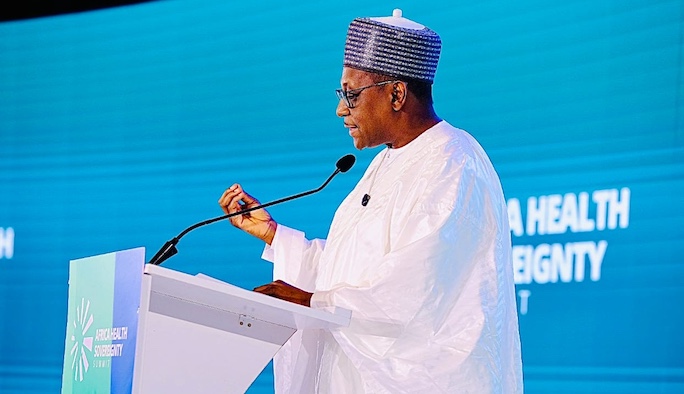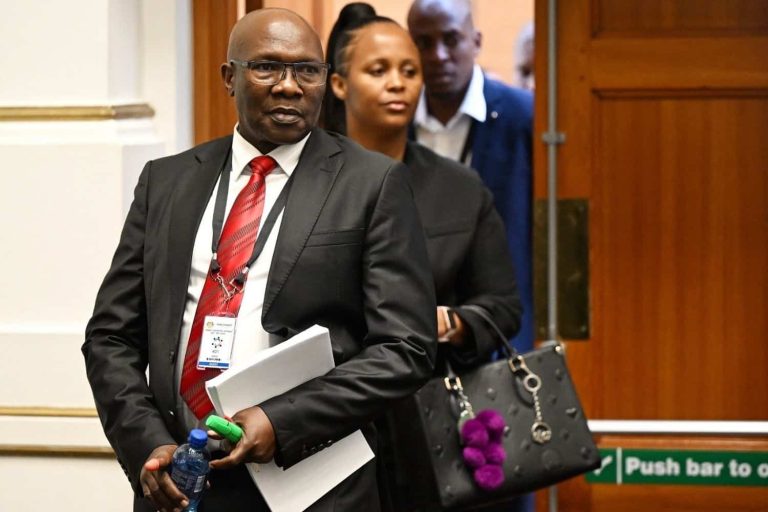
Coordinating Minister of Health and Social Welfare, Professor Muhammad Ali Pate, on Wednesday announced the disbursement of N32.9 billion, being the third tranche of such disbursements this year to all states and primary healthcare centres under the Basic Healthcare Provision Fund (BHCPF).
Pate said the funds were approved by Ministerial Oversight Committee (MOC) and guided by the newly launched BHCPF 2.0. he said the initiative was aimed at improving the quality of health services delivered to Nigerians by supporting facility operations, providing stipends for health workers, and expanding access to care.
Speaking on Wednesday during the third Quarter MOC Meeting in Abuja, Pate emphasised that the new guidelines marked a major milestone in Nigeria’s health reform agenda under President Bola Tinubu.
In a related development, and a landmark move to strengthen Nigeria’s healthcare system, the senate on Wednesday passed for Second Reading, a bill amending the National Health Act, 2014, to raise the Basic Health Care Provision Fund (BHCPF) from one per cent to two per cent of the Consolidated Revenue Fund (CRF).
The amendment, sponsored by Chairperson of the Senate Committee on Health, Senator Ipalibo Banigo, seeks to expand access to affordable and quality healthcare, particularly for vulnerable populations, while reducing the country’s heavy reliance on donor funding.
Banigo described the bill as both a “legal and moral imperative”, arguing that it would help the government to meet its constitutional obligation to ensure citizens’ welfare and security.
Speaking on Wednesday during the third Quarter MOC Meeting in Abuja, Pate stated that a Joint Task Force, working closely with ICPC, had been activated to ensure transparency and accountability in the use of the funds at community levels.
The minister commended state governors, commissioners for health, and development partners for their continued collaboration in strengthening Nigeria’s primary healthcare system.
Highlighting the steady progress in healthcare delivery, Pate revealed that more than 21 million Nigerians were now covered by health insurance, with over 11,000 pregnant women receiving emergency medical treatment, 15,000 women accessing obstetric care, and half a million pregnant women covered for maternal services through the BHCPF.
He added that over 80 million visits were recorded at primary healthcare centres in the first two quarters of 2025 – a fourfold increase compared to 2023 – reflecting the growing public confidence in the system.
The minister also announced that a Mini Demographic and Health Survey (DHS) will be commissioned to provide updated data in 2026, helping the government assess progress in maternal and child health outcomes.
Preliminary data already shows a 12-per cent reduction in maternal mortality compared to 2023, signalling that reforms and investments are beginning to yield results.
Pate acknowledged significant gains from the ongoing integrated immunisation campaign, which targeted 106 million children aged 0–14 across Nigeria.
The campaign, covering measles, rubella, polio, and neglected tropical diseases, has already achieved over 92 per cent uptake in northern states, surpassing initial targets.
He called on civil society and the media to continue supporting government efforts by informing Nigerians on the available services and amplifying success stories across the health sector.
The minister also said the ministry intended to launch an end-to-end digital platform for the NEMTC within two weeks.
A new public interest and conflict of interest protocol, the platform seeks to enhance governance transparency.
Pate said government planned to undertake the institutionalisation of Data Quality Assessments (DQAs) to ensure report accuracy, strengthened state engagement and submission of beneficiary data with NINs by December 2025.
On Senate’s doubling of the basic health fund, Banigo said, “Section 14(2)(b) of our Constitution makes the security and welfare of the people the primary purpose of government.
“This amendment gives practical meaning to that provision by guaranteeing sustainable funding for basic health services.”
The senator explained that BHCPF, established under the National Health Act in 2014, remained Nigeria’s first statutory mechanism for sustainable health financing.
She said the existing one per cent allocation had become grossly inadequate given the rising health needs, dwindling donor support, and Nigeria’s transition away from international funding platforms, such as Gavi, the Vaccine Alliance.
Citing the National Health Accounts (2022), Banigo revealed that Nigerians still paid over 75 per cent of total health costs out of pocket, an unsustainable trend that deepened inequality and drives many households into poverty.
She warned that the recent withdrawal of U.S. support for certain health programmes and the country’s gradual exit from donor platforms could leave Nigeria fully responsible for immunisation, maternal, and disease control costs.
Banigo cautioned, “Without an increase in domestic funding, we risk reversing years of progress in child survival, epidemic preparedness, and access to essential care.”
Banigo recalled that the National Dialogue on Health Financing, held in September 2025 by the National Health Insurance Authority (NHIA), in collaboration with key ministries and the Nigeria Governors’ Forum, had reached a broad consensus on the need to double the BHCPF to achieve Universal Health Coverage (UHC).
According to her, “This proposal reflects national consensus. Health is an investment in productivity and national security, not a cost.”
The lawmaker stressed that Nigeria’s primary healthcare centres (PHCs), which formed the backbone of the country’s health system, were in dire need of revitalisation due to poor infrastructure, inadequate staffing, and drug shortages.
She said raising BHCPF to two per cent would provide the resources needed to strengthen frontline facilities, recruit skilled health workers, and ensure consistent access to essential medicines and services for rural and low-income communities.
Banigo assured her colleagues that existing transparency measures governing the Fund would remain intact.
She said BHCPF will continue to be managed jointly by the National Primary Health Care Development Agency (NPHCDA) and the NHIA, with mandatory annual performance reports and audited accounts submitted to the National Assembly.
Describing the bill as a “historic and patriotic investment” in the country’s future, Banigo urged senators to view the measure as a bold step toward building a healthier, more productive society.
She said, “Health is both a right and a constitutional duty of the state. By supporting this bill, we reaffirm our commitment to the welfare of Nigerians and take a decisive step toward achieving Universal Health Coverage.”
Several senators, who contributed to the debate, commended the bill as a timely and visionary intervention that would help safeguard essential health services, protect vulnerable populations, and reduce the financial burden on citizens.
The bill was unanimously passed for Second Reading and referred to the Senate Committee on Health for further legislative work.
Onyebuchi Ezigbo and Sunday Aborisade



